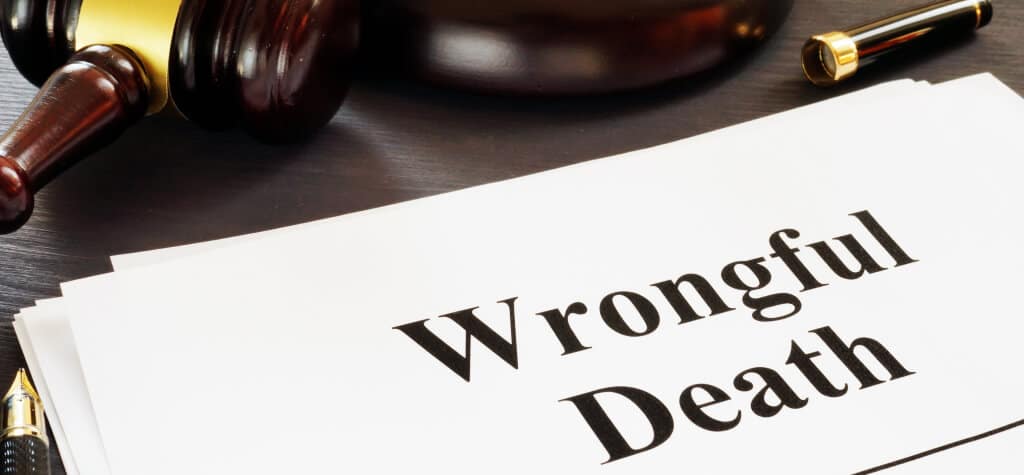The loss of a loved one is a profoundly difficult experience, made even more challenging when the death is the result of someone else’s negligence. In such cases, wrongful death claims are a legal avenue for seeking justice and compensation. However, these claims are not always successful. If you have received a denial in your wrongful death claim, it can feel like a devastating blow. But it’s important to understand that a denial is not the end of the road. There are several options available to you to move forward and potentially achieve a favorable outcome.
Contents
Reasons for Wrongful Death Claim Denials
Understanding why your claim was denied is the first step in addressing the issue. There are several common reasons for denials in wrongful death cases:
Insufficient Evidence
One of the most common reasons for denial is insufficient evidence. Wrongful death claims require substantial proof that the defendant’s actions directly caused the death. This evidence must be clear, convincing, and well-documented. Without it, the insurance company or court may find the claim unsubstantiated.
Statute of Limitations
Every state has a statute of limitations that sets a deadline for filing wrongful death claims. If you file your claim after this period has expired, it will be denied, regardless of the merits of the case.
Lack of Standing
Only certain individuals are legally allowed to file a wrongful death claim. Typically, these are immediate family members such as spouses, children, or parents. If the person filing the claim does not have legal standing, the claim will be denied.
Disputes Over Liability
In some cases, the defendant or their insurance company may dispute liability, arguing that their actions were not responsible for the death. This can lead to a denial if the plaintiff’s case is not strong enough to overcome these arguments.
Policy Exclusions
Insurance policies often have specific exclusions that can lead to claim denials. For instance, some policies may not cover certain types of accidents or may exclude coverage in certain situations.
What to Do After a Wrongful Death Claim Denial
Receiving a denial can be disheartening, but there are several steps you can take to challenge the decision and seek the compensation you deserve.
Review the Denial Letter
Carefully read the denial letter to understand the specific reasons why your claim was denied. This will help you identify what needs to be addressed if you decide to appeal or refile your claim.
Consult with an Attorney
According to the Orange County wrongful death attorney at Bridgford, Gleason & Artinian, a legal expert can provide invaluable assistance in understanding your options and navigating the complex legal landscape. They can review your case, gather additional evidence, help you build a stronger claim, and explore any potential avenues for recovering damages on your behalf.
File an Appeal
If your claim was denied by an insurance company, you typically have the right to appeal the decision. An appeal involves submitting additional evidence and arguments to demonstrate why the denial was incorrect. Your attorney can help you prepare a compelling appeal.
Refile the Claim
In some cases, it may be possible to refile the wrongful death claim with new or additional evidence. This is particularly relevant if your initial claim was denied due to insufficient evidence or errors in the filing process.
Consider Alternative Dispute Resolution
Alternative dispute resolution methods, such as mediation or arbitration, can sometimes be effective in resolving wrongful death claims. These methods involve a neutral third party who helps facilitate a settlement between the parties involved. This can be a faster and less adversarial option than going to court.
Pursue a Lawsuit
If all else fails, you may need to pursue a lawsuit against the responsible party. This involves taking your case to court, where a judge or jury will decide the outcome. While this can be a lengthy and costly process, it may be necessary to achieve justice for your loved one.
Strengthening Your Case
To improve your chances of success in appealing or refiling your claim, it’s important to strengthen your case. Here are some strategies to consider:
Gather Additional Evidence
Collecting more evidence can be crucial in supporting your claim. This might include obtaining medical records, accident reports, witness statements, or expert testimony that can help establish the defendant’s liability.
Address Any Deficiencies
Identify and address any deficiencies in your initial claim. This might involve correcting errors in the paperwork, providing more detailed documentation, or clarifying any ambiguities.
Highlight the Emotional Impact
While the primary focus of a wrongful death claim is on financial compensation, it’s also important to highlight the emotional impact of the loss. Testimonies from family members, friends, and colleagues can help convey the profound effect the death has had on those left behind.
Stay Persistent
Navigating a wrongful death claim can be a long and challenging process. It’s important to stay persistent and not give up, even in the face of setbacks. With the right legal support and a strong case, you can improve your chances of achieving a favorable outcome.
Find a Clear Path Forward
A wrongful death claim denial can be a significant setback, but it doesn’t have to be the end of the road. By understanding the reasons for the denial and exploring your options, you can take steps to challenge the decision and seek the compensation and justice your loved one deserves. With the right approach and legal support, you can move forward and navigate the complex process of a wrongful death claim.




